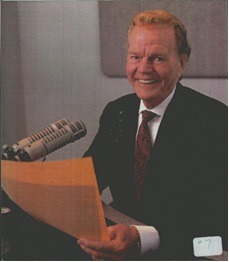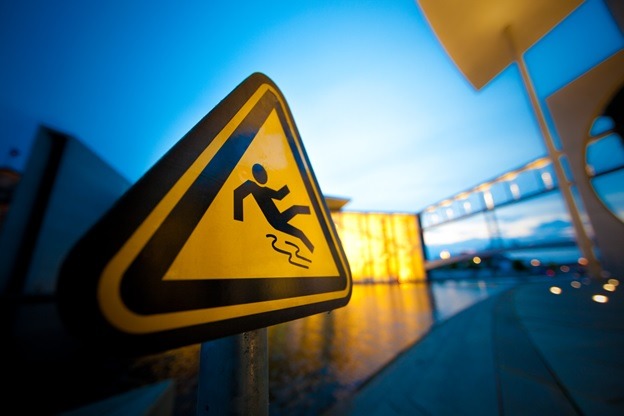As podcasting becomes more the radio rage with each passing month, questions about the customer experience and monetization continue to loom.
(BTW at the DASH Conference in November “On Demand In-Dash” will be a key theme, and we have booked incredible guests who are on the forefront of the space.)
Recently, New York Times’ OpEd columnist Joe Nocera wrote a cautionary piece about how savvy podcasters are slipping in those live reads, often making them indistinguishable from the content. In Nocera’s view, these sponsorship messages may be creating a slippery slope.
But with all due respect, Nocera’s old school journalism standards illustrate the problem that legacy brands like the New York Times struggle with as they attempt to grasp the changing nature of media and the rapidly shifting mindset of the consumer.
In his piece, Nocera profiles former NPR employees Alex Blumberg and Lisa Chow who produce the very successful “StartUp” podcast for their company Gimlet Media. His fear is that the “little stories” that Blumberg inserts into the podcast create potential conflicts, violating traditional journalistic taboos.
But in fact, these integrated ads – that don’t always sound like ads – are exactly what sponsors want. Part of the charm is that they differ from the way commercials sound on traditional media outlets.
Advertisers don’t want to be sequestered off to the side in annoying clusters of commercials the way they’re programmed by everyone from broadcast radio to Pandora. And public radio clearly identifies its “underwriters” in confined segments that usually have a live read feel.
Podcasters are not shackled by these radio mores or the journalistic constraints that have been a part of broadcast media for decades. And in early years, television and radio cleverly integrated its sponsors and advertisers back when Arthur Godfrey and other radio stars were the mega-celebrities of their day.
 And some of you reading this blog will recall the clever way that Hall of Fame broadcaster Paul Harvey used his “Page 2” lead-in to personally voice advertisements that often fooled even the most observant of listeners.
And some of you reading this blog will recall the clever way that Hall of Fame broadcaster Paul Harvey used his “Page 2” lead-in to personally voice advertisements that often fooled even the most observant of listeners.
It was simply brilliant radio, all made possible – and credible – by the genuine connection Harvey had with his millions of fans who loyally listened to him day in and day out.
The key, as Billy Joel once reminded us, is that integrated advertising, product placement, and related issues are “a matter of trust.” If you trust a media star, then these ads are simply part of the expected content.
NPR has researched this phenomenon thoroughly in their “Halo Effect” studies. Meaningful advertising starts with a trusted relationship between an audience and the content creators who serve them. Smart, well-informed brand managers are aware of where “the line” is, and what they can and cannot get away with.
Nocera quotes Martin Baron, the executive editor of the Washington Post, who sends a message to radio program directors everywhere, warning that journalists need to “abandon the idea that the newsroom can labor in isolation from the business operations.” And that “advertisers are looking for innovative, measurable and successful ways to connect with potential customers.”
Smart podcasters are inventing new revenue generating business models and architectures, another trait that sets them apart from traditional radio content creators.
But traditional PDs would be wise to take copious notes about how podcasting is reinventing audio entertainment and information, not just with the content itself, but with the way advertisers are integrated into the podcast.
Broadcasters might just learn a little something from podcasters.
- What To Do If Your Radio Station Goes Through A Midlife Crisis - April 25, 2025
- A 2020 Lesson?It Could All Be Gone In A Flash - April 24, 2025
- How AI Can Give Radio Personalities More…PERSONALITY - April 23, 2025





First off the inaugural season of Reply All is one of my favorite podcasts of all time. It should be mandatory listening for anyone in broadcast because it has valuable lessons on creating an innovative product and working in media. Plus Alex Blumberg and company present it, warts and all, in an entertaining and informative way. I also happen to love the way they produce their commercial content. They are fun, creative and I don’t skip over them because the adverts are so well done.
I am of the mind that radio as we hear it today will not exist within the next five to ten years. Radio is not going away but it must evolve to thrive. Listening on demand, much like the DVR and viewing on demand, will increasingly diminish the effectiveness of traditional commercials. Who is going to listen to several long stop sets an hour? How many of us do now? Radio/Audio companies must diversify how they make money. Scripps and Town Square have given us examples of how to create mutually beneficial partnerships where money can be made. But in the end radio has been and will always be about high quality content. To make money that quality must be consistent throughout an air shift from the music to the talk to the advertisements.
Do it differently. Experiment. Lead the industry into places no one else thought it would go. Not every idea will pan out but the ones we never try are guaranteed to fail.
Thanks Fred.
Thank YOU, Sean. This is a great comment, worthy of more thought and conversation. It makes me happy when I read outside opinions that help frame some of the bigger questions in radio. What commercials sound like and how they’re embedded within the content is one of those questions. Thanks, Sean.
Great post, Fred. Thanks for shining a light on this practice.
There’s a great bit of irony here. As a podcaster who’s written quite a bit about the advantages of host-delivered commercials, I love seeing podcasting held up as a model to PDs. The truth is, the idea came from radio, itself. For at least the first decade of commercial broadcasting, commercials were routinely integrated into programs. Often, the commercials were in the form of short skits that leveraged the talent and content of that week’s program.
I’m happy that podcasters are carrying the idea forward, and I’m sure we’d be delighted to share it with radio…considering who had it first.
It speaks to that connection between the two media, Jay. In a way, podcasting at times feels to broadcasters like FM radio did to those AM programmers who were wrapped pretty tightly. Thanks for the comment and the perspective.